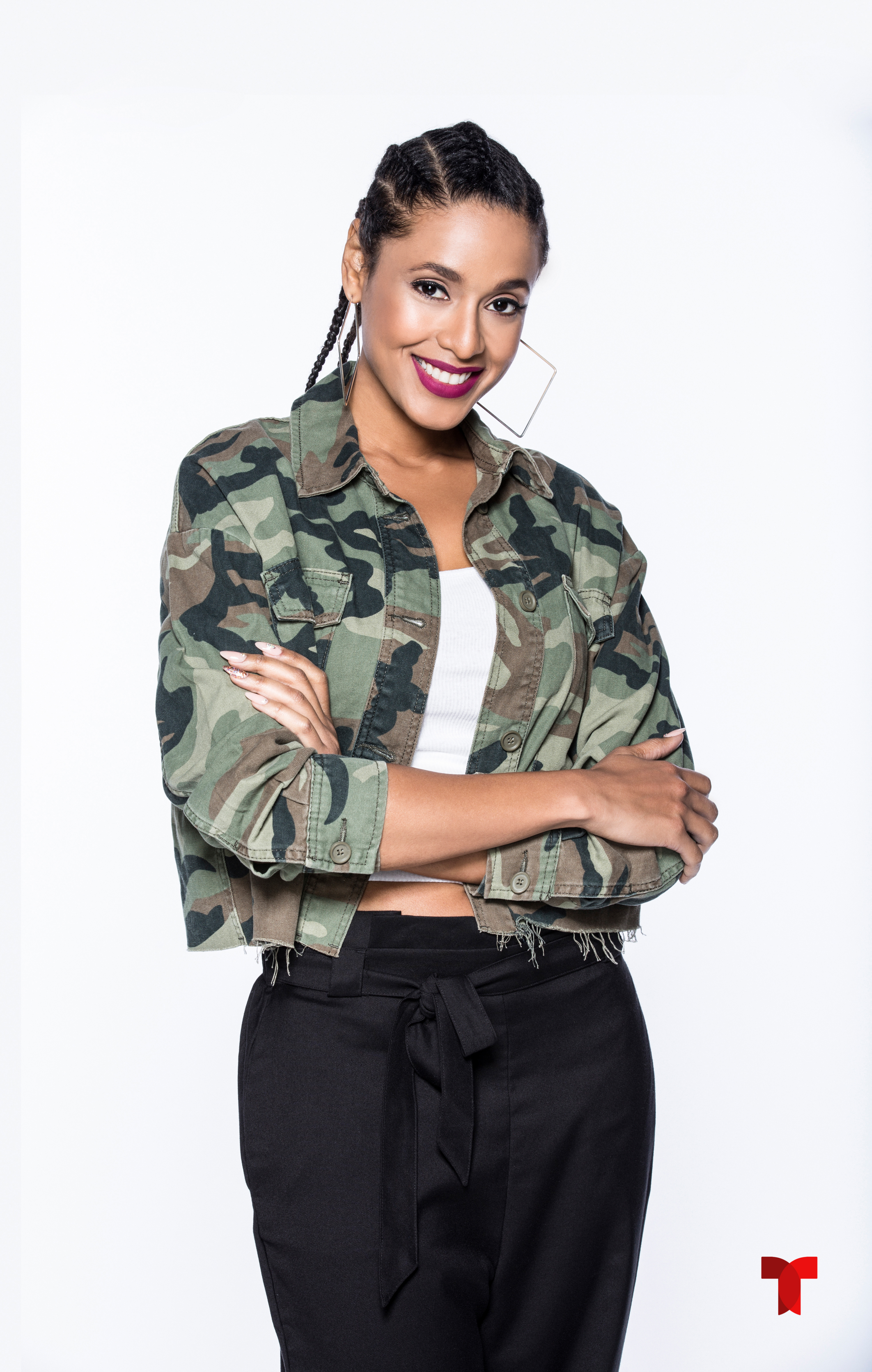‘Betty’ and Friend Take Manhattan Again
The smarter way to stay on top of the multichannel video marketplace. Sign up below.
You are now subscribed
Your newsletter sign-up was successful
Telemundo put a new spin on the classic ABC comedy series Ugly Betty in February with the launch of Betty en NY. The reboot — based on Yo soy Betty, la fea, the same classic 1999 Colombian telenovela from which Ugly Betty was adapted — places the heroine (now played by Elyfer Torres) in modern day New York City, looking for a job to help support her family.
The series co-stars Puerto Rico-born actress and singer Jeimy Osorio as Beatriz “Betty” Aurora Rincón’s friend, Mariana González. Osorio, who will be a keynote speaker at the Multichannel News/Broadcasting & Cable Multicultural TV Summit in New York on April 30, recently sat down with MCN to talk about the Telemundo series and share her thoughts on the increase in television programming with multicultural themes. Here’s an edited transcript of the conversation.

MCN: What attracted you to Betty en NY?
Jeimy Osorio: Number one, it was the opportunity to represent a Latina on international TV. Number two, as a proud Puerto Rican who lives in New York, which is really embracing of every culture. What is really beautiful is that you can see — not just in my character but the rest of the female characters in the story — very relatable experiences to what we are experiencing in society. It’s a project that makes families come together and heal through laughing.
MCN: Were you concerned about playing a role in a show that was so revered by viewers, particularly those in the Latino community?
JO: I was a bit concerned because [Yo Soy Betty, La Fea] was 20 years ago — there was a little bit of footage of what my character was, so I tried to make it as different as possible. She is the mediator in the group and she’s the one that always has the most moral answer. She tries to be as honest as possible and she’s not a bully, but at the same time she laughs at everyone else’s jokes and she gives you the confidence and trust to tell her your secrets.
RELATED STORY:Beyond Plain Vanilla
MCN: How do you view the legacy of Ugly Betty with regard to its por-trayal of Latinas, and what message do you want the show to convey?
JO: I feel really proud of this opportunity to spread this message all over the world and to break the stereotypes of how a Latin woman should be. I think we are human beings who have souls and have specific missions in life, and the fact that we are having this opportunity to be ourselves in this show — and for me to be Puerto Rican and to be true to myself — this show also gives me the feeling that this is a message of self-love.
This young lady, which is Betty, believes in herself and she believes in her values. She stays honest, even though she says she might break the law and she might not always do the correct thing morally, she’s true to her heart as she doesn’t allow what other people think about her destroy her. The fact that she’s stretching herself and pushing herself out of her comfort zone so that she can provide and bring this better future for her family is what a lot of Latinos and immigrants are experiencing right now. So it is really nice and refreshing to see this represented on TV.
The smarter way to stay on top of the multichannel video marketplace. Sign up below.
MCN: Are you encouraged about the increase of multicultural-themed programming on television?
JO: I am definitely more encouraged than ever, and I am really happy to be part of projects that bring those images to the table, because we know that television is also a way of forming society. If we know and understand how responsible we are of the messages that we spread, we’re going to change the world little by little because we have children who are watching these shows and believing that what they see on TV is true. So if we are creating more stories of people that have succeeded in life — whether it’s immigrants, females or males [of color] — we can create something where we all feel part of it. There are many stories to be told.
MCN: Following up on that, is this increase in multicultural programming a trend or can it be sustained for years to come?
JO: I’m a very positive person and I know that changes like these occur little by little, so we have to be consistent about it. It takes a lot of time and a lot of patience for us to understand that things are changing, and sometimes we need to unlearn some things. We’re now creating stories that are going to last as long as we can hold them because of these new platforms, so I think that there is a lot to come. This is just one of the steps … we have come down a long, long, road and I think there’s a lot more to come.
R. Thomas Umstead serves as senior content producer, programming for Multichannel News, Broadcasting + Cable and Next TV. During his more than 30-year career as a print and online journalist, Umstead has written articles on a variety of subjects ranging from TV technology, marketing and sports production to content distribution and development. He has provided expert commentary on television issues and trends for such TV, print, radio and streaming outlets as Fox News, CNBC, the Today show, USA Today, The New York Times and National Public Radio. Umstead has also filmed, produced and edited more than 100 original video interviews, profiles and news reports featuring key cable television executives as well as entertainers and celebrity personalities.

